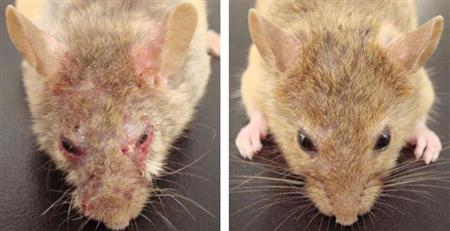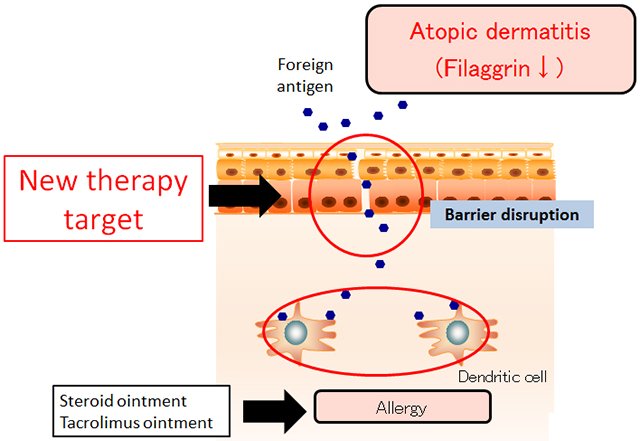Japanese Researchers Discover Compound Effective in Treating Eczema

Possible new therapeutic strategy to regulate atopic dermatitis via upregulating filaggrin expression
Date: September 17, 2013
Source: Kyoto University
Associate Professor Kenji Kabashima (Department dermatology, Graduate School of Medicine), and Postdoctoral fellow Atsushi Otsuka (Innovation Center for Immunregulation Technology and Therapeutics :AK project) found the compound to regulate atopic dermatitis via upregulating filaggrin expression.
This study was published in the “The Journal of Allergy and Clinical Immunology” on September 18th, 2013.
Outline
Nonsense mutations in filaggrin (FLG) represent a significant genetic factor in the etiology of atopic dermatitis (AD). It is of great importance to find drug candidates that upregulate FLG expression and to determine whether the increased FLG expression controls the development of AD. The group screened a library of bioactives using a FLG reporter assay to find candidates that promoted FLG mRNA expression using a human immortalized keratinocyte cell line (HaCaT).
 Methods and Results
Methods and Results
The group studied the effect of the compound on keratinocytes using the human skin equivalent model. The group examined the effect of the compound on AD-like skin inflammation in NC/Nga mice. JTC801 promoted FLG mRNA and protein expressions in both HaCaT and normal human epidermal keratinocytes (NHEKs). Intriguingly, JTC801 promoted the mRNA and protein expression levels of FLG but not the mRNA levels of other makers for keratinocyte differentiation, including loricrin, keratin 10, and transglutaminase 1 in a human skin equivalent model. In addition, oral administration of JTC801 promoted the protein level of mouse filaggrin and suppressed the development of AD-like skin inflammation in NC/Nga mice. This is the first observation that the compound, which increased FLG expression in human and murine keratinocytes, attenuated the development of AD-like skin inflammation in mice.

Findings of the group provide evidence that modulation of FLG expression can be a novel therapeutic target for AD.
For more details, click here.









